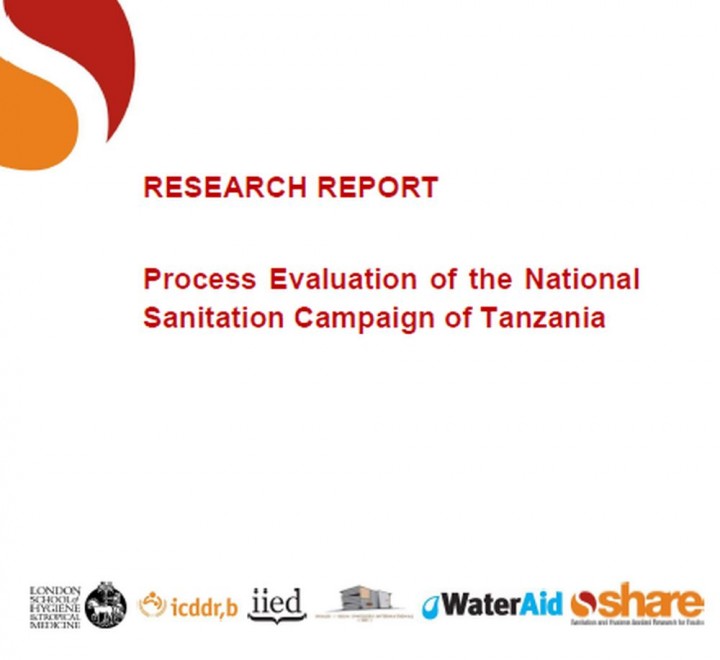
Published in: 2016
Pages: 140
Publisher:
London School of Hygiene and Tropical Medicine; Sanitation and Hygiene Applied Research for Equity (SHARE)
Author:
Various Authors
Uploaded by:
SuSanA Admin
Partner profile:
common upload
6073 Views
312 Downloads
Location of library entry
Despite continuous financial efforts to improve the conditions in the country, Tanzania was off track to meet both the MDGs target on water and sanitation and the national MKUKUTA goals. Whilst the country reached a high level of latrine coverage (90%) during the Mtu ni Afya campaign of the 1970s, very little progress has been made since then to move the population up the sanitation ladder, from unimproved to improved latrines.
To address the poor health conditions in the country, in 2011 the Government of Tanzania embarked on a National Sanitation Campaign (NSC) under the Water Sector Development Programme (WSDP). Phase I of the Campaign (2011-2015) aimed to improve rural households with adequate water and sanitation facilities, using a combination of CLTS, social marketing and behaviour change communication, as well as providing schools with appropriate WASH conditions.
In 2013 the Sanitation, Hygiene Applied Research for Equity (SHARE) consortium was commissioned to design and implement a process evaluation of the National Sanitation Campaign (NSC). The process evaluation was conceptualised as a collaborative effort between the SHARE consortium and the government of Tanzania to monitor the mid-term achievements of the programme, at household and school level, and the main barriers and enabling aspects of the NSC implementation.
The study design and protocol were prepared by the SHARE consortium, in collaboration with the Ministry of Health and Social Welfare (MoHSW), the National Institute for Medical Research (NIMR) and the National Bureau of Statistics (NBS). The MoHSW coordinated the execution of data collection which took place between August-December 2014, in 14 Regions and 46 Districts; NIMR provided advice on interpretation of protocol and fieldwork execution, the NBS was responsible for study area selection and development of sampling methodology.
Bibliographic information
Various Authors (2016). Process evaluation of the national sanitation campaign of Tanzania. London School of Hygiene and Tropical Medicine; Sanitation and Hygiene Applied Research for Equity (SHARE)
Filter tags
English














